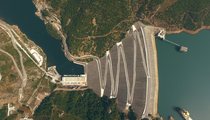Opportunities and risks from the creation of "DOGE" - Elon Musk takes the next objective, reforming the American government

(The Economist)
In 2017, Elon Musk labeled Donald Trump a "fraud" and "one of the best idiots in the world." But he is now known at Mar-a-Lago, which is Donald Trump's villa, as Uncle Elon and is in the closest circle of the US president-elect. The alliance of the world's leading politician and the richest man creates a concentration of power that both want to use to explosive effect: to shrink bureaucracies, challenge liberal orthodoxy, and deregulate the market in the name of economic growth.
Mr. Trump has a 4-year mandate to create such a rift. Despite America's economic prowess, much of Main Street, Wall Street, and Silicon Valley are frustrated by government depravity and incompetence. They have a right to be. The state needs a fix. Yet the reform led by Musk risks creating a new problem for America: the emergence of an explosive and corrupt oligarchy.
Weeks after helping Trump win the election, Musk has ascended to the pinnacle of power. The president-elect has appointed him to a new advisory body, called DOGE, charged with cutting spending. Musk is already in contact with foreign leaders and lobbying for cabinet appointments. It is not the first time that a tycoon has had extraordinary influence in America. In the 19th century robber barons like John D. Rockefeller dominated the economy. In the early 20th century, when there was no Federal Reserve, John Pierpont Morgan operated as an individual central banker.
Musk's firms are more global than the great monopolies of the 19th and 20th centuries, and smaller when measured by profits to GDP. Musk Inc is worth just 2% of America's stock market. Its main units are Tesla, an electric car firm; SpaceX, its satellite communications and rocket business; X, formerly Twitter; and xAI, an artificial intelligence startup that was valued at $50 billion in a recent deal. These mostly have market shares below 30% and face real competition. The Economist estimates that 10% of Elon Musk's $360 billion personal fortune comes from contracts and freebies from the US government and 15% from the Chinese market, with the rest split between domestic and international clients.
Musk is also different because he is disruptive. Instead of exploiting monopolies to raise prices, or creating a stable banking system as a basis for finance, most of Musk's companies use technology to lower costs in competitive markets. This disruption is central to Mr. Musk's messianic ideology, in which innovation conquers humanity's unsolved challenges, from climate change to colonizing Mars. The realization of these distant goals depends on a genius for continuous thought of industrial processes. His desire for freer action helps explain his disdain for orthodoxies, including what he regards as clever conformism. From bureaucrats who allowed the US government's space launch market to be manipulated by defense firms to Californian regulations governing Tesla factories, Musk sees the state as an obstacle to economic growth.
Both Trump and Musk want to reorganize the entire federal government. Musk has said the DOGE agency could aim to cut as much as $2 trillion from the $7 trillion annual federal budget and abolish many agencies. It is easy to label such goals as naive; $2 trillion is more than all of the government's discretionary spending, i.e. the costs without which businesses or households can survive. But with a budget deficit of 6% of GDP and debt at nearly 100%, reform is needed. The Pentagon machinery is struggling to adapt to the age of drones and Artificial Intelligence. Lobbying by incumbent firms helps explain why federal regulations have reached 90,000 pages, near an all-time high. Even if Musk were to achieve only part of his liberalization, America could have much to gain.
However, what are the risks? The president-elect is an economic nationalist, and the industries in which Musk has interests have become strategic, thanks to the rivalry with China, the militarization of space and cross-border disinformation wars. Proximity to power can allow it to sidestep regulations and tariffs and thwart competitors in fields ranging from cars and cryptocurrencies to autonomous vehicles and Artificial Intelligence. Since early September, the total value of Musk Inc's businesses has surged 50% to $1.4 trillion, far outperforming the market and peers, as investors bet Musk will be able to profit immensely from his friendship with the president.
At the same time, Musk can get flustered, especially when it's outside his areas of expertise. He has shown erratic judgment in foreign affairs, micromanaging the use of the Starlink satellite service in Ukraine and comparing the status of Taiwan to that of Hawaii. His love of the limelight and conspiracies, as well as the whirlwind of social media, are disturbing. With $50 billion of his personal wealth tied to China, which contributes to half of Tesla's output, he is an obvious target for manipulation.
Musk may also fail before he starts, because of the Trump-Musk combination. The next president likes to hire and fire. The tech mogul is also ready to fire back at executives. The fusion of Silicon Valley techno-utopianism with the nationalism of Mr. Trump's world is fundamentally unsustainable. Reforming government requires patience and diplomacy, two qualities that apparently aren't Elon Musk's strong suit.
If Mr. Musk's political career turns out to be short, it could still have two lasting and damaging effects. One would be to remove politicians from reforming the government. With his appointment, this target has received more attention than ever. But if he builds a half-assed program it will end in spectacular failure. And ambition to tackle spending will stall for years.
The other effect would be the normalization of collusion between politicians and tycoons. As the state expands into trade, industrial policy, and technology, the incentives for state capture will increase. At the same time, Mr. Trump's method involves weakening institutions and practices that are supposed to protect against conflicts of interest. America is far from behaving like an emerging market. But if oligarchic titans of business were to routinely work with dominant politicians, they would suffer great harm. This was once unthinkable, yes

More affordable tax-free 'havens': Best choices for expats in 2025?
Tax-free countries are often described as "paradise", offering a life without income tax. But how much do expats really have to pay to settle in these......

Germany's new tram broke the world record with a length of 58 meters!
The world's longest tram has made its debut on a line connecting three cities in southwestern Germany. Running along the lines of the Rhine-Neckar......

Notre Dame opens 5 years after the fire - President Macron visits the rebuilt cathedral
Notre-Dame Cathedral in Paris will open its doors on December 7. It is considered one of the best examples of French Gothic architecture and the best......

Greece, 100 million euro package for energy - The government aims to protect families, small businesses from rising costs
The Greek government will implement a 100 million euro subsidy package to protect households and businesses from rising electricity prices. The plan includes......

Rain and snow in some areas - Balluku: Work is being done to clear the roads for normal traffic
The territory of the country has been affected by rain and snow, but according to the Albanian Road Authority, no problems have been noted in the circulation......

Thousands of Italian public sector employees protest against the government's budget plan!
Thousands of nurses, teachers and other public sector workers in Italy walked off the job on Friday to fight the government's budget plan. The unions......

The value of gold in BSH, 277.71 million euros - Currently, one ONZ is exchanged for 2,653 dollars
The gold reserve in the Bank of Albania has reached the value of 277.71 million euros. According to the official data of the Bank of Albania, the total value......

António Costa takes over the leadership of the European Council - The first black person to occupy a high post in the bloc's history!
The changing of the guard has taken place in Brussels. Charles Michel, the outgoing president of the European Council, has handed over the baton to his......


















